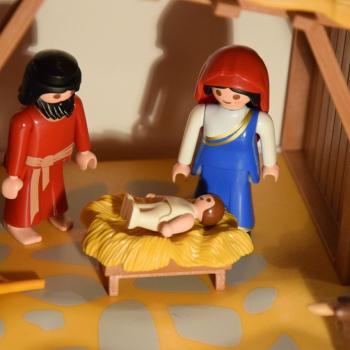
Reasons We Must Let Go
It is not morally wrong to choose to cut off contact with toxic family members. I learned recently that extended family is not meant to be a focal point once we marry and have our own children. The scripture clearly defines priorities from that point forward: God, Spouse, and Children. That is not meant to say we should stop loving or including our extended family. However, if that extension is toxic, we can let go.
Scripture supports cleaving to our spouse and prioritizing our children. Marriages and children need to be nurtured and protected. The Bible also advocates guarding one’s heart against toxic or demoralizing behavior in those whose company we keep, the latter of which is particularly important for cycle breakers. Parents lay the groundwork for how our children expect to be treated by others. To do that, we must set an example for them. What does that mean?
It means that sometimes we have to say no. When all other avenues have been explored, we must refrain from further contact with people who have hurt us because it’s not okay to hurt other people, and our kids need to see that it is okay to make the choices that are best for their body, heart, and spirit.
Lastly, when it comes to letting go of toxic people, guilt comes with the territory. As Christians, sometimes we unnecessarily martyr ourselves because we think that is what Jesus expects. No, not when it comes to toxic people who serve no purpose but to harm us. We must learn to let go of our feelings of guilt. That last one takes prayer and time. When having big feelings validate yourself–It is not morally wrong to choose to cut off contact with toxic family members.
Scripture That Supports Marriage Over Toxic Extended Family
I assert that in cases where toxicity has been present for decades with no remorse or attempt at reconciling ill behavior, we are not required to put ourselves in the position to be hurt just for the sake of family ties. This does not necessarily mean just parents but anyone in the extended unit.
Let’s first consider the biblical perspective on marriage. God blesses the sanctity of marriage and encourages us to prioritize our spouse over our family of origin. Several scriptures support this:
Genesis 2:24: “That is why a man leaves his father and mother and is united to his wife, and they become one flesh.” Proverbs 18:22:“He who finds a wife finds what’s good and receives favor from the Lord.” Ecclesiastes 9:9: “Enjoy life with your wife, whom you love, all the days of this meaningless life that God has given you under the sun—all your meaningless days. For this is your lot in life and in your toilsome labor under the sun.” 1 Peter 4:8:“Above all, love each other deeply, because love covers over a multitude of sins.”
Scripture That Warns Us About the Company We Keep
God tells us to honor family, love others as we do ourselves, and speaks at length on the importance of helping others. That should not be confused with putting ourselves in toxic situations. He speaks about the importance of avoiding such entanglements as well. For those of us recovering from people pleasing as a trauma response, it’s tough, but truly, your heart matters, and toxic people put our very spirit in danger. The Bible warns us to be aware of toxicity and not place ourselves in situations that can corrupt us; this includes toxic family members.
1 Corinthians 15:33:“Do not be misled: “Bad company corrupts good character.” Proverbs 13:20:“Walk with the wise and become wise, for a companion of fools suffers harm.” Psalm 1:1:“Blessed is the one who does not walk in step with the wicked or stand in the way that sinners take or sit in the company of mockers.” Proverbs 6:27:“Can a man scoop fire into his lap without his clothes being burned?”
1 Corinthians 5:11:“But now I am writing to you that you must not associate with anyone who claims to be a brother or sister but is sexually immoral or greedy, an idolater or slanderer, a drunkard or swindler. Do not even eat with such people.” 1 Corinthians 10:13:“No temptation has overtaken you except what is common to mankind. And God is faithful; he will not let you be tempted beyond what you can bear. But when you are tempted, he will also provide a way out so that you can endure it.”
Now that we have discussed the scripture that backs up the argument that it is not morally wrong to choose to cut off contact with toxic family members, lets talk about setting an example for our kids.
Setting An Example And Reaffirming That It is Not Morally Wrong To Cut Off Contact With Toxic People
It occurred to me recently that I am a major people-pleaser. I feel anxious saying no, which tends to lead to a feeling of overwhelm as I attempt to do everything even if I am overstimulated and don’t have the time. I will think to myself that I need to stop and take a break, but then I don’t. This made me realize that I need to learn to say no more often and model that it is an acceptable, guilt-free choice for our children.
Emily Edlynn, Ph.D., discusses modeling boundary setting for children. “Setting boundaries is a life skill that cannot start too young because it takes practice! If your child sees you saying “no” in appropriate and respectful ways, this helps them learn not only that it’s okay but how to do it.” This serves two purposes. First, it demonstrates to our children how to say no; second, the act allows us to practice.
Have you seen the TikTok trends where parents teach their kids a boundary song? For super young ones, this is a helpful tune to help them learn that it’s okay to say no and ask for space. Unfortunately, there are times when these steps are not enough, and as parents, we make the tough decision to stay away from those who do not respect those boundaries. It’s important to remember that that’s okay. Cutting off contact with toxic family is not wrong, sometimes it’s necessary.
Let Guilt Go–It is Not Morally Wrong To Cut Off Contact With Toxic People
It is so easy to cave to feelings like fear, anxiety, and anger. Our perceptions are our reality, however, and that deserves validation. Sometimes, I find myself choosing to stick something out that hurts me because I feel guilt walking away from it. Certain things and people are bad for us. Occasionally, people have a level of what they can tolerate and must react or plan accordingly. Let me explain with a visual. My husband is lactose intolerant. But he loves strawberry milkshakes. Sometimes, when the weather is colder, he can have a small helping. But, he must cut it out at a certain point before he overdoes and makes himself sick.
If something makes you feel sick or causes you pain, it is up to you and you alone to discern what you can tolerate. There is no shame in setting a boundary and holding to it. Guilt is unnecessary when we must give something up entirely for our own mental and physical well-being. This includes toxic people, even if those folks are technically family. Hebrews 10:22: “let us draw near to God with a sincere heart and with the full assurance that faith brings, having our hearts sprinkled to cleanse us from a guilty conscience and having our bodies washed with pure water.” In conclusion, it is not morally wrong to choose cutting off contact with toxic family members.

















